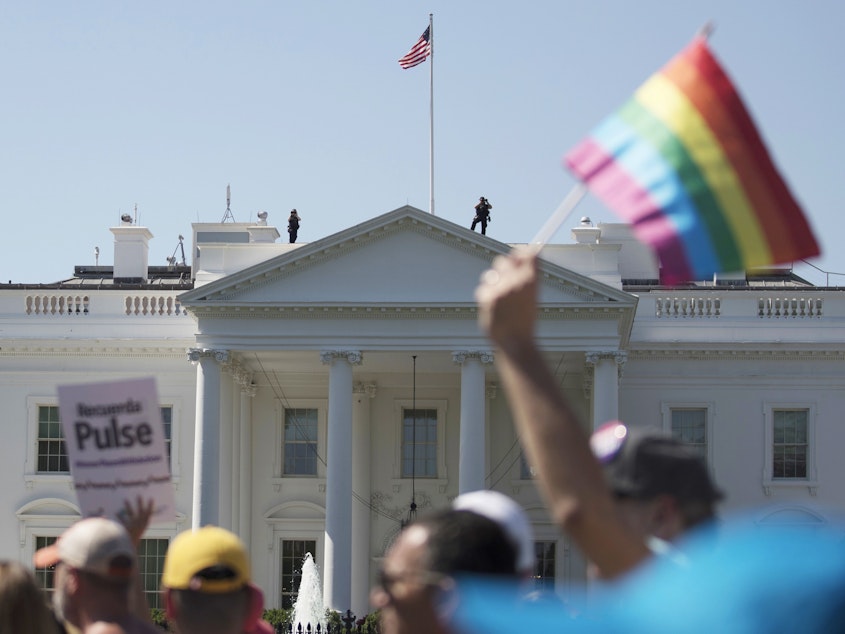U.S. Will Protect Gay And Transgender People Against Discrimination In Health Care

Gay and transgender people will be protected from discrimination in health care, the Biden administration announced Monday, effectively reversing a Trump-era rule that went into effect last year.
The announcement from the Department of Health and Human Services concerns one of the most notable parts of the Affordable Care Act — the provision in Section 1557 that prevents healthcare providers and insurance companies from discriminating on the basis "race, color, national origin, sex, age or disability in certain health programs and activities."
Beginning today, the agency says it will interpret that provision to encompass discrimination against someone on the basis of their sexual orientation or gender identity in health care.
"Fear of discrimination can lead individuals to forgo care, which can have serious negative health consequences," said HHS Secretary Xavier Becerra in a statement. "It is the position of the Department of Health and Human Services that everyone – including LGBTQ people - should be able to access health care, free from discrimination or interference, period."
Officials at HHS framed the change as updating the agency's interpretation of existing law to bring it into alignment with Bostock v. Clayton County, last year's landmark decision by the U.S. Supreme Court. That ruling found that LGBTQ people are protected by the Civil Rights Act of 1964 banning discrimination on the basis of sex.
"It is impossible to discriminate against a person for being homosexual or transgender without discriminating against that individual based on sex," wrote Justice Neil Gorsuch in the ruling.
That decision last June came down just a few days after the Trump administration finalized a rule removing nondiscrimination protections for LGBTQ people in health care.
"The Supreme Court has made clear that people have a right not to be discriminated against on the basis of sex and receive equal treatment under the law, no matter their gender identity or sexual orientation. That's why today HHS announced it will act on related reports of discrimination," Becerra said.
The Biden administration will likely put forward a formal rule on this issue, according to health law experts. Normally, federal agencies must follow a lengthy process for issuing new rules and regulations. The Trump administration's rule, which took effect in August, took about a year to finalize and is still technically on the books.
That rule was itself a reversal of an Obama-era executive action. The Trump administration had worked to define protections against sex discrimination throughout government to exclude LGBTQ people.
When that rule was finalized last year, LGBTQ people and advocates criticized the change, saying it could have a chilling effect on gay and transgender people seeking needed healthcare.
"The mission of our Department is to enhance the health and well-being of all Americans, no matter their gender identity or sexual orientation. All people need access to healthcare services to fix a broken bone, protect their heart health, and screen for cancer risk," said Dr. Rachel Levine, Assistant Secretary for Health, who in March became the first openly transgender person to serve in a Senate-confirmed position.
The announcement from HHS comes as conservative state legislatures are working to enact a variety of bills targeted at transgender people. Last month in Arkansas, legislators overrode Gov. Asa Hutchinson's veto to enact a new law banning doctors from providing gender-affirming medical care to transgender youth.
"With health care for transgender youth under attack by state legislatures, this move to protect LGBTQ people from discrimination in health care is critical. The Biden administration has affirmed what courts have said for decades: Discrimination against LGBTQ people is against the law. It also affirms what transgender people have long said: Gender-affirming care is life-saving care," said Chase Strangio, deputy director for transgender justice at the ACLU. [Copyright 2021 NPR]



